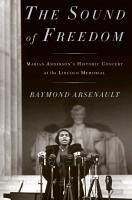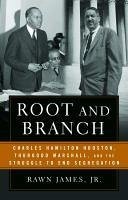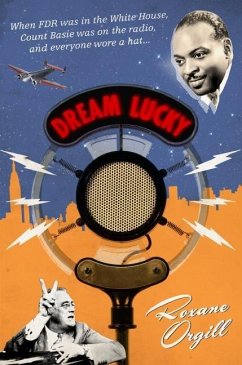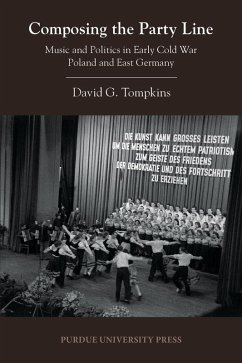
The Sound of Freedom (eBook, ePUB)
Marian Anderson, the Lincoln Memorial, and the Concert That Awakened America

PAYBACK Punkte
4 °P sammeln!
Award-winning civil rights historian Ray Arsenault describes the dramatic story behind Marian Anderson's concert at the Lincoln Memorial--an early milestone in civil rights history--on the seventieth anniversary of her performance.On Easter Sunday 1939, the brilliant vocalist Marian Anderson sang before a throng of seventy-five thousand at the Lincoln Memorial in Washington--an electrifying moment and an underappreciated milestone in civil rights history. Though she was at the peak of a dazzling career, Anderson had been barred from performing at the Daughters of the American Revolution's Cons...
Award-winning civil rights historian Ray Arsenault describes the dramatic story behind Marian Anderson's concert at the Lincoln Memorial--an early milestone in civil rights history--on the seventieth anniversary of her performance.
On Easter Sunday 1939, the brilliant vocalist Marian Anderson sang before a throng of seventy-five thousand at the Lincoln Memorial in Washington--an electrifying moment and an underappreciated milestone in civil rights history. Though she was at the peak of a dazzling career, Anderson had been barred from performing at the Daughters of the American Revolution's Constitution Hall because she was black. When Eleanor Roosevelt resigned from the DAR over the incident and took up Anderson's cause, however, it became a national issue. Like a female Jackie Robinson--but several years before his breakthrough--Anderson rose to a pressure-filled and politically charged occasion with dignity and courage, and struck a vital blow for civil rights.
In the 1963 March on Washington, Martin Luther King would follow, literally, in Anderson's footsteps. T his tightly focused, richly textured narrative by acclaimed historian Raymond Arsenault captures the struggle for racial equality in 1930s America, the quiet heroism of Marian Anderson, and a moment that inspired blacks and whites alike.
On Easter Sunday 1939, the brilliant vocalist Marian Anderson sang before a throng of seventy-five thousand at the Lincoln Memorial in Washington--an electrifying moment and an underappreciated milestone in civil rights history. Though she was at the peak of a dazzling career, Anderson had been barred from performing at the Daughters of the American Revolution's Constitution Hall because she was black. When Eleanor Roosevelt resigned from the DAR over the incident and took up Anderson's cause, however, it became a national issue. Like a female Jackie Robinson--but several years before his breakthrough--Anderson rose to a pressure-filled and politically charged occasion with dignity and courage, and struck a vital blow for civil rights.
In the 1963 March on Washington, Martin Luther King would follow, literally, in Anderson's footsteps. T his tightly focused, richly textured narrative by acclaimed historian Raymond Arsenault captures the struggle for racial equality in 1930s America, the quiet heroism of Marian Anderson, and a moment that inspired blacks and whites alike.













